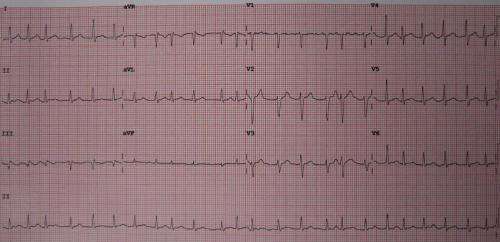Team hopes to integrate social determinants of health, eradicate inequities in AF diagnosis, management and outcomes

Social determinants of health (SDOH) are the influence of circumstances and systems in which individuals are born, live, work, age and access health care. The deleterious consequences of SDOH on atrial fibrillation (AF) have rarely been investigated.
To address this oversight, the National Heart, Lung, and Blood Institute convened an expert panel to identify major knowledge gaps and research opportunities in the field of social determinants of AF. Led by Boston University Chobanian & Avedisian School of Medicine researcher Emelia Benjamin, MD, ScM, the panel identified multiple knowledge gaps and research opportunities to accelerate SDOH research related to AF.
"Social determinants of health affect access to care and management decisions for AF, increasing the likelihood of adverse outcomes among individuals who experience systematic disadvantages," says corresponding author Benjamin, professor of medicine.
AF is an irregular, often rapid heartbeat (arrhythmia) that can result in blood clots in the heart and increases the risk of stroke, heart failure and other complications
The panel addressed the following social determinants:
- Socioeconomic status and access to health care
- Health literacy
- Race, ethnicity and racism
- Sex and gender
- Shared decision making in disadvantaged populations
- Place, including rurality, neighborhood and community
Multiple social determinants could be factored into the impact of AF on the health of individuals and communities. Additionally, cumulative disadvantages that accumulate throughout one's lifetime and have been associated with cardiovascular mortality in women, have not been studied regarding impacts on AF.
The researchers submit that the development of advanced statistical and machine learning approaches may allow for analyses of complex intersectional identities. "Ensuring equitable access to broadband and mobile health technologies will enhance research in technologically disadvantaged populations," adds Benjamin, who also is a cardiologist at Boston Medical Center.
These findings appear as a Special Communication in JAMA Cardiology.
More information: Transforming Atrial Fibrillation Research to Integrate Social Determinants of Health: A National Heart, Lung, and Blood Institute Workshop Report, JAMA Cardiology (2022). DOI: 10.1001/jamacardio.2022.4091




















